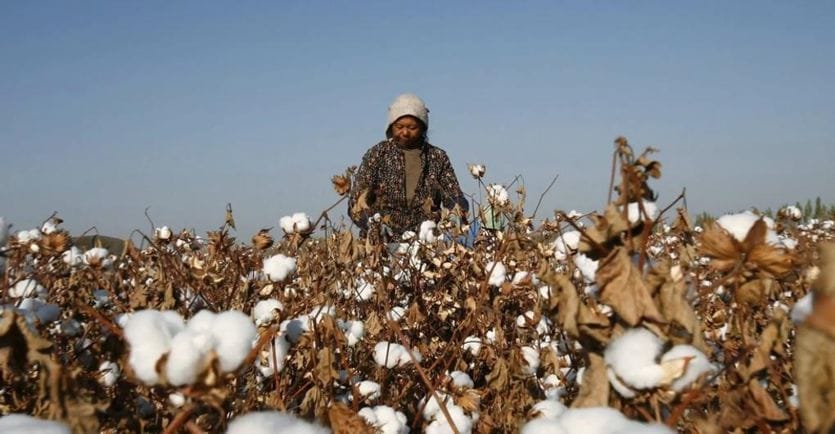Listen to the audio version of the article
Over eight hundred thousand tons of cotton resulting from large-scale illegal deforestation activities in Brazil. Cotton grown in places where land grabs, corruption and plantation violence have occurred. Cotton, above all, certified – by Better Cotton, the largest “certifier” of sustainable cotton born in 2009 – and then used to produce clothing by international fashion groups such as Inditex (Zara, Pull&Bear) and H&M.
The investigation by the NGO Earthside
The journey of this “contaminated” cotton was traced – through, among others, some satellite images – the British NGO Earthside in the report «Fashion crimes: European retail giants linked to dirty cotton from Brazil». The cotton, despite the certification, would come from two of Brazil’s largest agroindustrial companies – Slc Agrícola and the Horita group – in the northwestern state of Bahia. According to Earthside, the Brazilian families who own these companies have “a history of prosecution, corruption convictions and millions of dollars in fines for illegal deforestation.” Brazil has dramatically increased cotton production in recent decades, almost all of it in the Cerrado, where it is now routinely grown in rotation with soybeans. By 2030, Brazil is expected to overtake the United States to become the world‘s largest cotton exporter.
The request for clarification from Inditex and the previous accusations against Better Cotton
Following the publication of the report, as reported by Reuters, on April 8 the Galician group Inditex sent a letter to the CEO of Better Cotton Alan McClay asking for clarification on the certification process and on the progress on the traceability practices implemented by BC . “Better cotton” is currently grown in 22 countries around the world (including Brazil, which produces 42% of the total, but also in Egypt, Mali and Mozambique) and represents almost a quarter (22%) of the world cotton production. In the 2022-23 season – we read on the site – 2.2 million Better cotton farmers grew 5.4 million tonnes of certified cotton. It is not the first time that the certifier’s work has been criticized and essentially accused of greenwashing, so much so that between 2020 and 2021 the sustainability program changed its name and put on paper a new strategy with a horizon of 2030. In 2017 the founder of Patagonia Yvon Chouinard, one of the pioneers of sustainable fashion, in an interview with Der Spiegel went so far as to define the Better Cotton Initiative as “absolute bullshit: pure greenwashing”.
“These companies talk about good practices, social responsibility and certification systems, they claim to invest in traceability and sustainability, but all this now seems as false as their shop windows on the high streets,” said Sam Lawson, director of Earthsight. It is now very clear that crimes related to the goods we consume must be addressed through regulation, not through consumer choices. This means that legislators in consuming countries should put in place strong laws with rigorous enforcement. In the meantime, shoppers should think twice before purchasing their next piece of cotton clothing.”
The European standard (which does not include cotton)
The new EU regulation 2023/1115 on deforestation, which came into force in June 2023, obliges companies to trace the origin of raw materials to ensure that they are not the result of practices that damage forests, but it does not concern cotton but palm oil, cattle, soy, coffee, cocoa, wood and rubber or derived products such as beef, furniture or chocolate.
